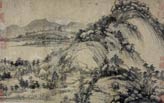China-US
Clinton remarks aim to estrange Sino-African ties
Updated: 2011-06-15 09:41
(Xinhua)
BEIJING - US Secretary of State's remarks to liken China's presence in Africa as "new colonialism" aims to estrange relations between China and African countries, said a leading Chinese expert on African studies Tuesday.
The comment made by US Secretary of State Hillary Clinton aims to maximize the US interests in Africa and ensure its interests will not be eroded, said He Wenping, director of the African Studies Office of the Chinese Academy of Social Sciences.
The "new colonialism" talk lacks historical evidence or comprehensive and powerful facts and the United States is viewing the growth of Sino-African relations through some outdated "cold war mentality," He said.
The United States is again smearing China's aid to Africa and its normal business activities there, He said.
On one hand, the United States is rebuking China over "robbing" Africa of resources, on the other hand, it is expanding investment in Africa's resources sector and importing more oil from Africa.
Sixteen percent of the United States' oil imports came from Africa in 2006. The proportion is expected to go up to 25 percent in 2015, according to the US National Security Council.
Exxon Mobil Corp., for instance, has banded other investors to invest to into laying an oil transportation pipeline in Chad to facilitate oil exports to the United States. The pipeline project, of which the cost stood at $3.7 billion, is so far the largest private investment in infrastructure in the African areas to the south of Sahara.
China's current oil imports from Africa, however, is less than one third of the United States' oil imports from the Africa.
It's also baseless to say China is exploiting the African market through sales of cheap goods as the low-priced goods actually provide "affordable" commodities to Africans and improved their livings, He said.
It's a fact that China's strong competitiveness in textile industry has affected the textile sectors in some African countries, but China has been imposing textile exports quota limits on itself to help some African countries restructure textile sectors.
There is no attached conditions in China's investment and aid to Africa, reflecting the country's clear stance of not interfering in African countries' civil affairs and fully respecting their independently-chosen growth paths, He said.
The cap of "new colonialism" should never be put on China, said Chinese Premier Wen Jiabao in his visit to seven African countries in June 2006.
"China had suffered about 110 years of colonialism since the Opium War in 1840. The Chinese people understand the pains brought about by colonialism and know colonialism should be battled against. This is one of the reasons that we have long been supporting liberation and revival of the African nations," Premier Wen said.
Hillary Clinton made the remarks on June 11 during the recording of a television program in Lusaka, capital of Zambia, on China's increased influence in Africa.
She said she was concerned that China's foreign assistance and investment practices in Africa have not always been consistent with generally accepted international norms of transparency and good governance.
"We saw that during colonial times, it is easy to come in, take out natural resources, pay off leaders and leave...And when you leave, you don't leave much behind for the people who are there. We don't want to see a new colonialism in Africa," she said.
Analysts said America has been worrying about warming Sino-African relations, believing the healthy relationship might challenge the US-dominated global political and economic order.
It's not the first time for China to be criticized of "new colonialism" and such rebukes are increasingly prevailing in some western countries, especially some original colonizers of Africa.
A report by US think tanks, including the RAND Corporation, the Heritage Foundation and the US Council on Foreign Relations claimed China was one of the largest rivals for the United States in Africa in the future and urged for full strategies to weaken China's influence in Africa.
Sino-African trade topped $126.9 billion in 2010. Africa became China's fourth largest investment destination with $1 billion of investment last year.
China remitted 312 deals of debts to African countries, totaling 18.96 billion yuan ($2.93 billion) from 2000 to 2009, official statistics show.
Specials

When two are one
After a separation of 360 years, Huang Gongwang's famous Dwelling in the Fuchun Mountains has been made whole again.

Wealth of difference
Rich coastal areas offer contrasting ways of dealing with country's development

Seal of approval
The dying tradition of seal engraving has now become a UNIVERSITY major